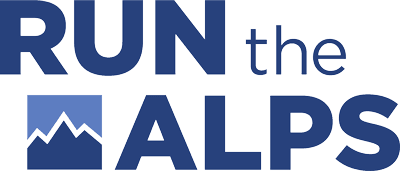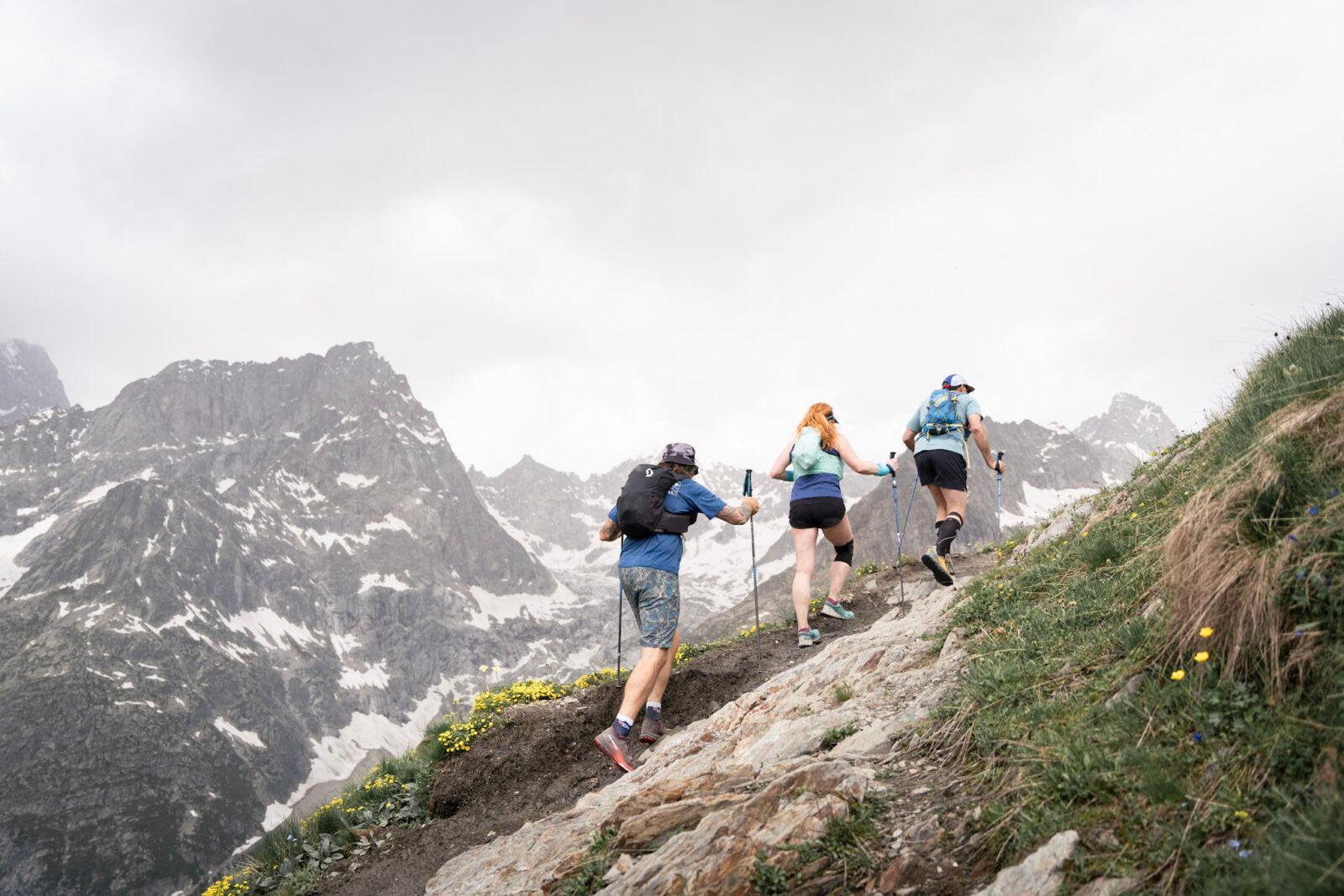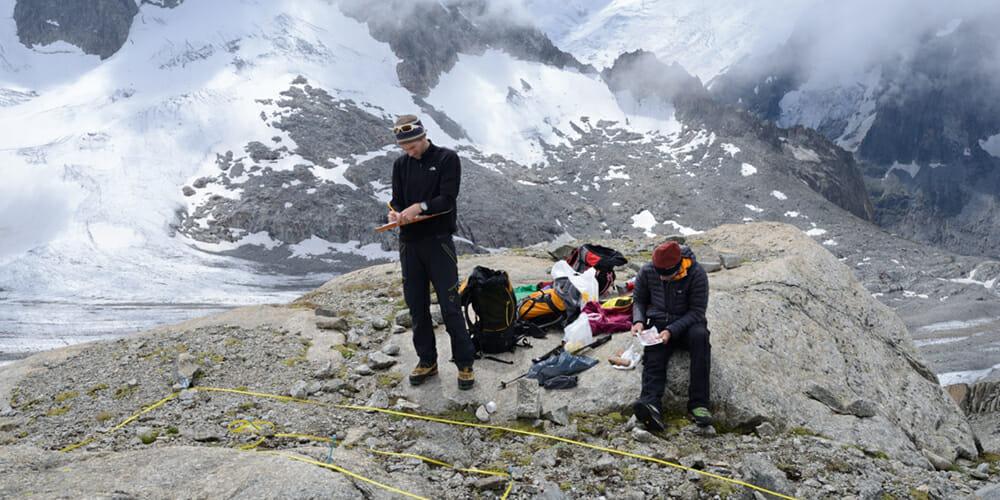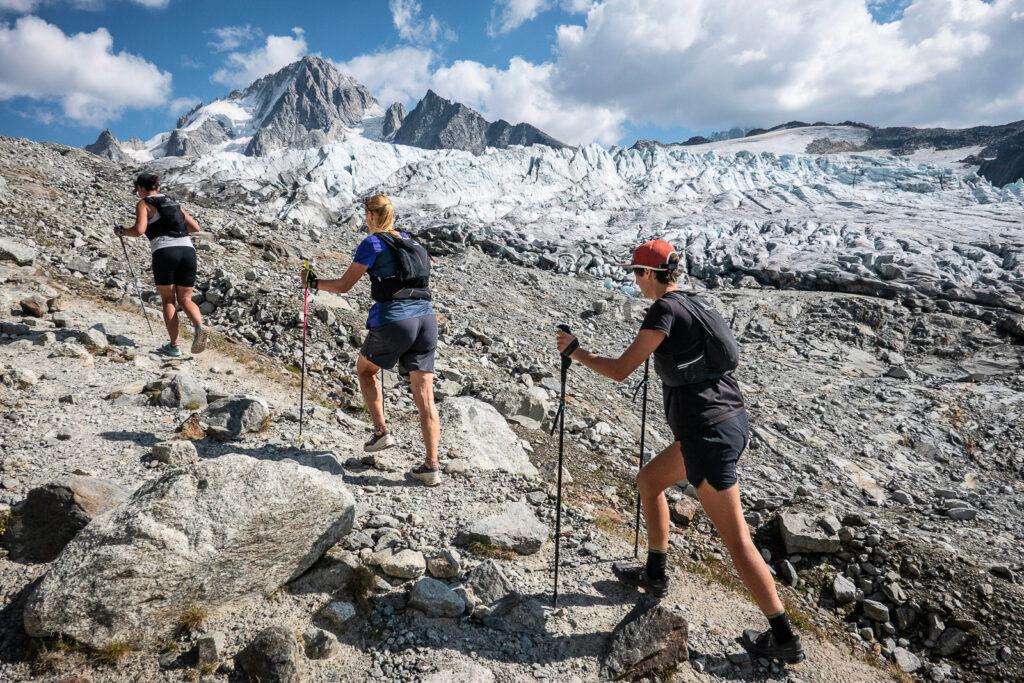

Run the Alps Announces the Stewardship Project
When I started Run the Alps five years ago, questions about our environmental impact were never far from my mind. For two decades prior, much of my life had been spent on issues related to alpine stewardship, in my home range of New England’s White Mountains.
So when I created a travel company in the Alps—a place where visibly receding glaciers are a constant reminder of the effects of unchecked climate change—it was impossible not to ask myself questions like:
How can we travel and experience pristine alpine environments, without simultaneously damaging that which we love?
What are the environmental impacts of an organization like Run the Alps—and how can we, as staff and leaders, minimize those impacts?
How can we share our values without coming off as preachy?
With Run the Alps now happily up and running, I’ve had the opportunity to dig deeper into these issues and move forward with our launch of the Stewardship Project.

What Is the Run the Alps Stewardship Project?
Most simply put, it is our organization’s commitment to continue exploring the complex issues of sustainable adventure travel and do everything we can to pass on a healthy ecosystem for generations to come.
In many ways, stewardship has been baked into Run the Alps since day one, when we partnered with 1% for the Planet and began contributing 1% of our annual gross proceeds to environmental stewardship efforts. Our most recent contributions have been to CREA Mont-Blanc, a nonprofit organization in Chamonix, France, devoted to studying the effects of climate change on alpine biodiversity, sharing knowledge with the public, and working with lawmakers to effect meaningful change.

Additionally, we signed on to operate in accordance with the principles of Sustainable Travel International, which led us to develop group size limits for our trips, run our trips using the 7 Leave No Trace principles, and sign the Climate Neutral Now Pledge. This means that we’ve committed to measuring and reporting our greenhouse gas emissions, reducing them as much as possible on our own, then offsetting the remaining emissions with UN Certified Emissions Reductions (CERs).
This past spring, we also added Chamonix-based International Mountain Leader and environmental writer Jennifer Stretton to our team. She is an important addition who has enabled us to move forward with the Run the Alps Stewardship Project. You can look forward to her writing on our blog as we continue to push ourselves in new and creative ways to be better stewards of the trails we use, the villages we visit, the vistas we enjoy, and the earth we inhabit.
Why I Value Mountain Stewardship
After college, I was inspired by longtime US outdoors writers Guy and Laura Waterman, authors of Wilderness Ethics, a book that fundamentally changed my life. The books, stories and articles by Guy and Laura led me to consider more thoughtfully my role in the mountains I still think of as home. For two decades in New Hampshire’s Northern White Mountains, I led trail crews, taught Leave No Trace programs, and served on various nonprofit boards of directors. Guy and Laura became dear friends, and when Guy died, a number of us banded together to form the Waterman Fund, which remains a vibrant organization in alpine stewardship endeavors around the Northeast.
Bringing those principles to Run the Alps only made sense. I view the Stewardship Project as, fundamentally, an obligation. Our economic system doesn’t account for what economists call “externalities”—that is, those impacts for which we pay no direct financial cost. In the case of a company like Run the Alps, those externalities are not inconsequential.
If Run the Alps—and the mountains and trails we love—are still going to be around fifty years from now, we’d better address these impacts. We caused them. It’s nothing less than our obligation.

What You Can Expect Next from the Stewardship Project
In the coming weeks, you’ll hear more about the project and our efforts to measure and mitigate the climate impact of our trips through investments in initiatives that take the equivalent amount of carbon out of the atmosphere. (Get ready to geek out with us on the sometimes-arcane world of carbon offsetting. More on that, soon.)
The next version of the Guide to Trail Running in the Alps that our guests receive will have a section on sustainability. We’re also working on specific Leave No Trace principles for trail running in the Alps.
In the year ahead, we’ll explore other environmental impacts of our trips, most notably the wear and tear on the trails we love. Then, we’ll look at other forms of impact, including social impacts of our groups on the trails, and cultural impacts as we pass through the many small mountain villages that dot this area we now call home.
Through it all, we’ll be asking ourselves:
How can we do better?
How can we integrate this message into our work?
How can we share this message with our guests in a low-key way?
We Want to Hear From You
The Stewardship Project is at its core a work in progress. We have already learned a lot about how to think about our impacts, and how to minimize and offset them. But we will need to be smarter and more aware and remain open to hearing new ideas. To get there, we welcome your input. You can write me personally. I look forward to hearing from you.
I think often of Sierra Club Executive Director David Brower’s quote that, “There is no business to be done on a dead planet.” We must do better, and not tomorrow. We must do better today. There is too much at stake to do otherwise.
Now, time to remember what it’s all about. I’m off for a run into the mountains.